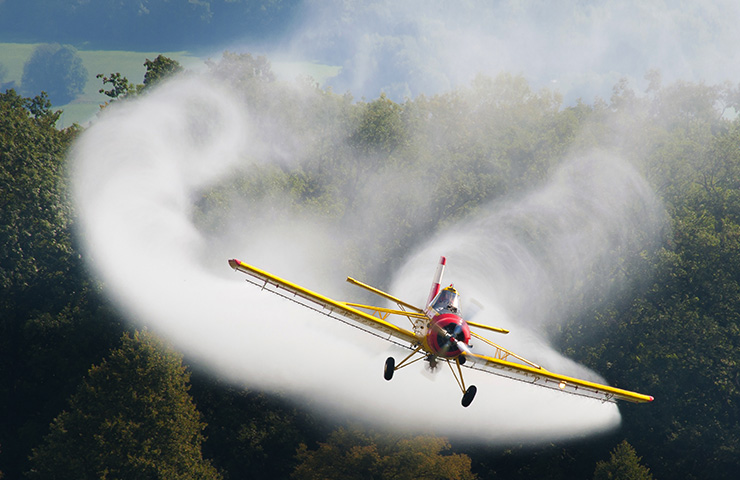RIO DE JANEIRO, BRAZIL – On September 23, the U.S. House of Representatives approved a bill to prohibit funds donated by the United States to Colombia from being used for the fumigation of illicit crops. It will also block the sale of arms for the Esmad police force.
This bill, according to El Tiempo, requests that the State Department and the Department of Defense presented a report in six months with a detailed evaluation of human rights in Colombia due to the murders and disappearances that occurred during the social protests in early 2021, most of them at the hands of state agents.
Read also: Check out our coverage on Colombia
The project is the National Defense Authorization Act (NDAA) and is intended to establish parameters of guidelines for U.S. defense and security spending.

According to the media, these provisions were announced by Representative Alexandria Ocaso-Cortez and were approved as part of a larger package of amendments.
What could affect the government of Iván Duque the most is related to fumigations, since Colombia insists on fighting drug trafficking in this way and the United States is the one who helps to pay the costs of the spraying.
The entire bill has not been approved yet, since a different NDAA is advancing in the Senate, and it is not known if it will accept the measures approved this Thursday with respect to Colombia.
How is the process for Colombia to return to the use of glyphosate going?
Six years after being suspended, aerial spraying of coca, poppy and marijuana crops has been announced by the government of Iván Duque that it will return to glyphosate-based on the justification that it is the most effective way to do this process. The announcement was made despite the contractions generated by the peace agreement signed in 2016 and the multiple petitions from peasants and rural people.
Even to achieve the full authorization of the use of glyphosate, the Ministry of Health delivered its previous concept on the subject, based on a study prepared by the University of Cordoba where it gave an idea in favor of the use of the pesticide since different studies at international level indicate that it has a strong relationship with the development of cancer and other diseases.
As reported in the Washington Post on March 23, the director of the Washington Office on Latin America (WOLA), Adam Isacson, stated during a conference that aerial spraying of glyphosate had been a failure because “every time they spray, the crops go down for a little while, but then they always recover”.
According to the U.S. State Department, Isacson also stated that after spraying 1.8 million hectares over 21 years, the prices per gram of coca in the U.S. markets were not significantly affected.

